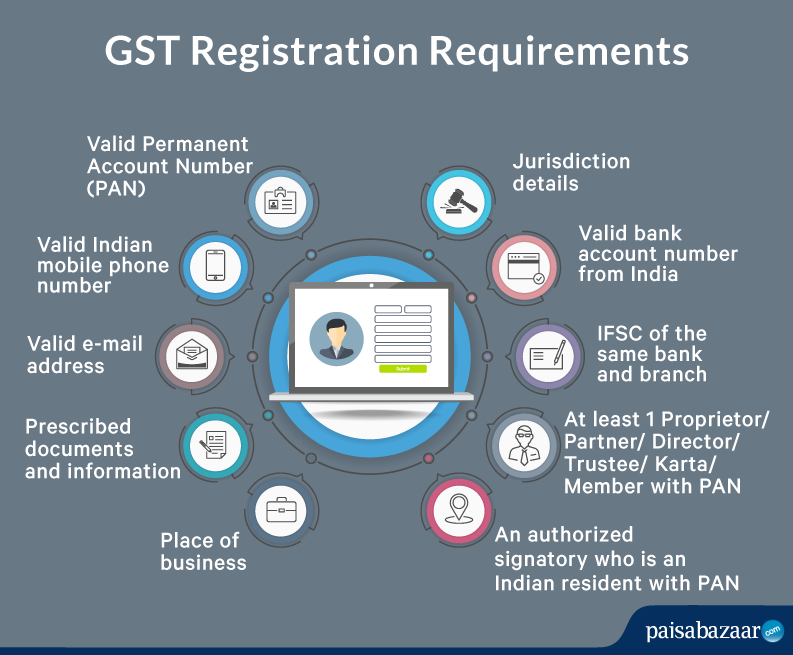Expert Tips for Choosing the Best GST Registration Services in Singapore
Expert Tips for Choosing the Best GST Registration Services in Singapore
Blog Article
From Beginning To End: The Ultimate Roadmap to GST Enrollment for Services Seeking Financial Stability
Navigating the intricacies of Goods and Provider Tax Obligation (GST) registration is a critical step for companies striving for financial security. Damaging down the roadmap into manageable actions can enhance the enrollment journey for organizations looking to improve their monetary standing.
Comprehending GST Basics
Digging right into the essential principles of Product and Services Tax Obligation (GST) is crucial for acquiring an extensive understanding of its effects on businesses and the economic situation. Input Tax Obligation Debt (ITC) is a substantial feature of GST, allowing organizations to claim debt for taxes paid on inputs, lowering the total tax concern. Understanding the fundamentals of GST is essential for services to abide with tax laws, manage their finances successfully, and add to the nation's economic development by getting involved in a transparent tax system.
Eligibility Requirements for Enrollment
As of the current guidelines, the threshold limitation for GST registration is an annual accumulation turn over of 40 lakhs for organizations running within a state, except for unique category states where the restriction is 20 lakhs. Additionally, certain organizations are needed to register for GST irrespective of their turnover, such as interstate suppliers, informal taxed persons, and organizations liable to pay tax under the reverse cost system. It is crucial for businesses to thoroughly analyze their turn over and deal types to identify their GST registration responsibilities accurately.
Records Needed for Enrollment
Having actually met the qualification requirements for GST enrollment, services must now guarantee they have the requisite papers in area to continue with the enrollment process successfully. The documents required for GST enrollment typically include evidence of company constitution, such as collaboration deed, enrollment certification, or incorporation certificate for various types of services. Furthermore, services need to offer documents developing the principal business, such as a rental contract or electricity bill. Frying pan card of the service, as well as the identification and address proof of promoters/partners/directors, are essential for verification functions. Savings account statements, along with canceled cheques or a copy of the financial institution passbook, are required to validate the economic details supplied throughout registration. Organizations must have digital trademarks all set for the accredited signatory. Making certain all these papers are arranged and conveniently offered will certainly expedite the GST registration process, making it possible for services to adhere to tax guidelines perfectly.
Step-by-Step Registration Refine
Starting the GST enrollment process includes a series of organized steps to make certain a seamless and certified enrollment for businesses. The initial step is to see blog the GST portal and complete the registration kind with precise details of business entity. Following this, the candidate obtains a Temporary Recommendation Number (TRN) which is made use of to return to the application process if it's not finished in one go.
Following, all called for papers based on the list given by the GST portal requirement to be uploaded. These records typically click over here consist of evidence of business identity, registration and address proofs of marketers, monetary statements, and service entity's PAN card.

Post-Registration Conformity Standards

Verdict
To conclude, organizations seeking financial security must comprehend the basics of GST, meet qualification criteria, gather required documents, adhere to the step-by-step registration process, and abide by post-registration standards - Best GST registration services in Singapore. By sticking to these steps, companies can make sure compliance with tax obligation guidelines and preserve economic stability in the long run
In addition, particular businesses are needed to register for GST irrespective of their turn over, such as interstate distributors, laid-back taxed individuals, and services accountable to pay tax under the reverse cost mechanism.Having actually met the eligibility standards for GST registration, businesses have to now guarantee they have the requisite records in place to proceed with the registration process efficiently. The records needed for GST registration generally include proof of business constitution, such as partnership deed, enrollment certificate, or unification certification for different types of services. In addition, businesses need to provide files establishing the primary location of organization, such as a rental contract or power costs.Starting the GST registration procedure includes a collection of structured steps to ensure a compliant and seamless enrollment for companies.
Report this page